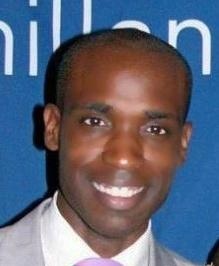David O. Kuranga, Ph.D.
The author is the Managing Director and Principal of Kuranga and Associates, a full-service investment, political and economic risk consultancy, and asset management firm that specializes in Africa. He is also the author of The Power of Interdependence with Palgrave Macmillan Press.
The unraveling international debacle of a suspected murder of U.S. special operations soldier Sgt. Logan Melgars in Mali has shined light on what a greater presence of U.S. troops in Africa would look like. The Elite U.S. soldier belonging to the Green Beret outfit of the U.S. Army is now widely believed to have been murdered by two of his brothers in arms from the U.S. Navy, Seals Team 6 outfit. The dispute appears to have arisen due to the deceased discovery that two of his colleagues were stealing money from a fund they were given to pay informants that would provide them with intel. Instead of using the funds for what they were meant, the suspects were discovered mismanaging funds for personal gain.
Needless to say, the entire debacle is giving Africa a clear picture of how U.S. forces operate in Africa, and what increasing their presence would look like. Highly trained elite forces on the ground are given extreme latitude to engage in a host of activities that not even the commanders of those forces are aware of. Before forces can be deployed there is an operating agreement between them and the host countries. However that agreement is made at the leadership level. What this incident shows is that U.S. leadership’s command and control of the actions of its forces on the ground in Africa is at best, extremely limited, and at worst, there is little to no control at all.
The AFRICOM missions are mixing and matching forces from competing units, such as was done in this case with the Navy and the Army, which have completely different command and control structures. Despite efforts by military leadership to integrate forces over the years, this incident proves beyond a doubt that they are nowhere near able to ensure that their personnel across competing units can function effectively on the ground. Further what this incident also is now showing is that for a paltry amount of money, these elite forces can by coopted and diverted from their mission to engage in nefarious activities. Perhaps, politicians, criminals, businesspeople, and corporations are exploiting this and certainly could if their presence on the ground in Africa were to expand in any meaningful way. Just one of these elite forces could destabilize an entire city in Africa, yet alone a small group of them, acting completely autonomously, with an agenda to maximize their profits from their deployment.
Even if these forces were keeping to protocol the fact that they are paying local actors should raise eyebrows. They claim that they are paying for intel so that they can operate and support local forces, but could they also be paying local actors for something else? Could they pay-off and/or hire local police forces to engage in unsanctioned activities, especially when they notoriously go unpaid for months in Africa? Could they pay-off gangs, criminals, rebels, opposition groups, unions, or key figures in society to foment unrest and instability? One thing that’s certain, is that all these scenarios are a possibility, and given that there are many ways to profit from deployment in Africa, there is no way that even the most genuine U.S. commander could ensure that this would not occur given what is now transpiring. They could not prevent their soldiers from engaging in these activities, yet alone even have any knowledge of them.
What is even worse, given that the stated objective of AFRICOM is to establish a foothold in Africa, what incentive do they currently have to quell unrest and instability in Africa? Would it not make more sense for them to allow instability to increase so as to justify a need for their growing presence on Africa soil. This very issue came to the forefront when the involvement of the U.S. in the Boko Haram fight in Northern Nigeria only seemed to make things worse. Further, the same country refused to sell weapons to the elected government in Nigeria that was fighting terrorist allied with ISIS. It was visibly clear that former National Security Adviser Susan Rice harbored overt hatred for Nigeria and its very existence. Only recently with the election of President Donald Trump in the U.S. has policy begun to shift.
If one looks at the model of Afghanistan and the global opioid crisis and prevalence of heroin world-wide, the increase of U.S. forces has indeed resulted in a greater uncontrollable crisis for them. In the context of Africa, if Afghanistan duplicates itself in Africa, African leaders will be faced with extremely well-financed criminal elements like has never been seen before. Wars and conflicts over natural resources continues to foment unrest and instability in Africa, but if illicit narcotics were to be added into the mix, Africa could plunge into perpetual conflict with ungovernable narco-states, natural resource theft, and a total erosion of developmental gains over the past decade. Countries throughout Africa, should critically rethink any expansion of U.S. military presence in Africa, and focus their efforts of capacity building and redoubling cooperation with neighboring states to maintain its own peace and security without the presence AFRICOM.
Kuranga and Associates Limited is an investment management advisory firm and an asset manager with a principle practice area of Africa. To learn more about Kuranga and Associates LTD contact us at theassociatesincubator@gmail.com. © Copyright 2017 David Kuranga. All rights reserved. This material may not be published, broadcast, rewritten or redistributed.

David O. Kuranga; Ph.D.
Managing Director
Kuranga & Associates Limited
Phone: 646.481.6263
david.kuranga@gmail.com
https://kurangaandassociates.wordpress.com
